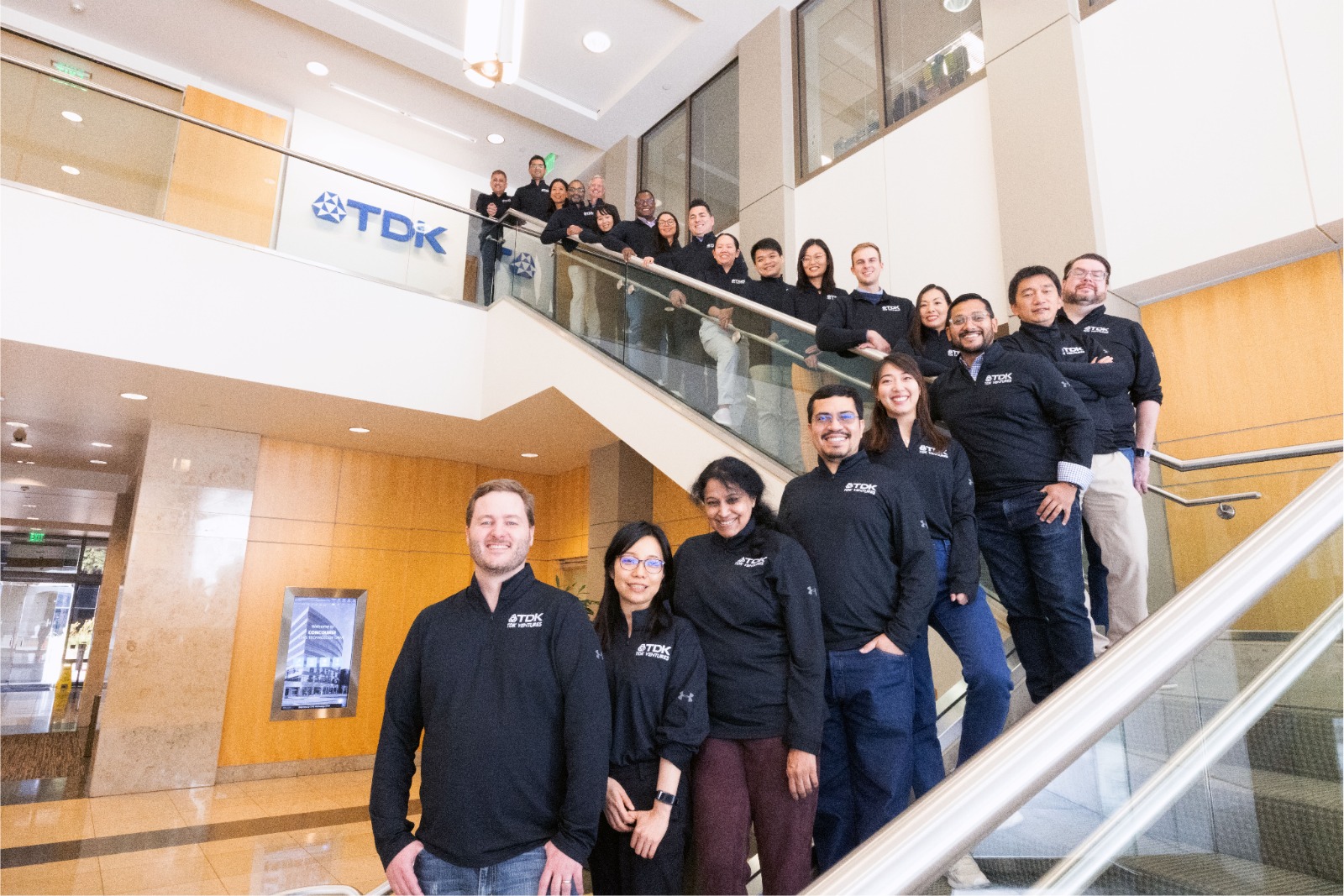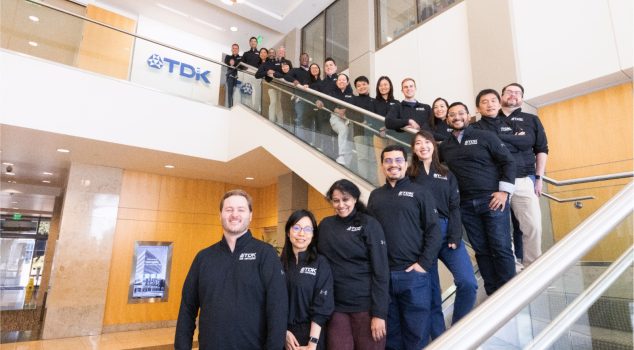Entertainment
Innovating to Find Solutions to Global Challenges

From climate emergencies and wars to accelerated digitisation – law firms can and must work with business leaders to respond and lead in this time of multipolar innovation and polycrisis.
The world is facing unprecedented challenges across economic, environmental, political and social spheres. To solve these challenges, a truly global approach is critical and law firms will play a crucial role by providing innovative and effective legal solutions and frameworks.
For global law firms, this means helping clients prepare for the future by demonstrating deep curiosity about their challenges and fostering a culture of innovation, inclusivity and sustainability. Law firms must also be open to scale their capabilities through combinations and partnering in order to meet the global complexities of the world today.
Technology – opportunities and risks
Technology is an area that has experienced unprecedented levels of change in the past years. It offers tremendous opportunities for growth and transformation, but also exposes businesses to significant risks. Global law firms are uniquely positioned to help companies with key issues and changing business environments that arise from this. A few developments in particular are impacting businesses significantly:
- Data has essentially become the new currency. For law firms, access to data will enable them to find better solutions to the global challenges facing their clients.
- The COVID pandemic turbocharged the arrival of the digital age. With businesses embracing technology, law firms can advise them on new ways of generating revenue and transforming business models.
- Artificial intelligence is opening up transformational opportunities in all areas of human activity, but also poses risks. These opportunities and legal risks present a wide range of ethical, legal and regulatory challenges.
The role of law
The importance of law and legal systems has never been greater and they remain a foundation stone for global business activity. The sector is independent of political systems and retains the benefits of a trusted adviser status. This means that the leading law firms have an important role to play in society and a unique opportunity to facilitate transformational change.
However, this is only possible if lawyers understand the changing needs of their clients, where innovation is needed and where the value will be for global business in the future. This will require transformational change in the structure of the legal industry and the ways law firms deliver their services in the future.

Innovating to find solutions
Clients are increasingly facing complex, topic-based challenges that require a combination of global and local (or “glocal”) solutions. Among these emerging “supra-national” topics are trade and sanctions, supply chains, ESG, energy transition, data security and mergers and acquisitions. Truly global law firms, or law firms that collaborate on a global basis, will be best placed to develop effective solutions to help clients.
An important aspect for law firms is to focus on using technology to provide support around specific legal, regulatory and business challenges as well as find new ways of delivering and accessing services. These solutions include products that can be deployed completely independently and predesigned solutions that use technology and pre-integrated expertise.
Outlook
The world is in constant change and the future will be very different from what we know today – whatever it is, the Rule of Law and the role of law firms will remain critical for our society.
Read more: cms.law
Find out more about DAVOS 2024
Entertainment
Catalysts of Change: Venture Capital in Shaping Global Innovation Ecosystems

Venture capital plays a pivotal role in steering the trajectory of transformative startups, shaping the dynamics of emerging ecosystems, and fostering innovation globally. We believe the next decade demands a shift in the approach of venture firms, moving beyond mere financial transactions to embrace collaboration with diverse stakeholders.
Venture capitalists can orchestrate a holistic approach by promoting collaboration and knowledge-sharing among entrepreneurs, investors, policymakers, and other key players. This interconnected strategy can not only nurture groundbreaking technologies but also create an environment conducive to innovation, driving economic growth and societal progress.
The economic and societal impact facilitated by venture capital and startups is substantial. Startup ecosystems contribute to economic growth through job creation, economic diversification, productivity, and competitiveness. Moreover, they can address critical challenges and enhance the quality of life, creating a ripple effect that propels communities toward a brighter future.
Venture capital’s transformative impact often extends beyond traditional investment strategies, particularly in developing startup ecosystems. Over a decade of investing and operating in these environments, we’ve observed that by empowering emerging markets, venture capitalists can generate alpha and unlock untapped potential.
Startups in these regions, often facing challenges in accessing conventional venture capital, can benefit from blended and catalytic capital, along with mentorship, education, skills development, and networking. This fusion of financial and non-financial support can effectively address hurdles and propel innovation in areas teeming with possibilities.
Despite their potential, emerging markets pose unique challenges for startups, including limited access to traditional venture capital, regulatory hurdles, and infrastructure gaps. Here, blended and catalytic capital tailored to the specific needs of these markets can be crucial in unlocking their immense potential.
Governments play a crucial role as catalysts for startup ecosystem development. Favorable policies, infrastructure investments, and talent development initiatives create an environment conducive to innovation and entrepreneurship. Collaboration between the public and private sectors, along with partnerships between venture capital firms, state-owned investors, and sovereign wealth funds, can set the stage for sustainable growth and development.
The startup flywheel, a self-reinforcing cycle of innovation, growth, and reinvestment in the ecosystem, gains momentum through venture capital. By supporting early-stage startups, venture capitalists set the stage for the creation of successful companies. These success stories may attract further investment and talent, fueling a perpetual cycle of innovation and growth across the broader ecosystem.

As billions of people come online and digitization efforts bring valuable technology to populations worldwide, we believe there is significant potential for growth. Through research, 500 Global has identified the “Rise 30” economies poised for growth that, combined, are expected to surpass each of the U.S. and China in GDP by 2027.
The Rise 30 economies, characterized by high growth rates, young populations, and access to the internet and mobile devices, present potential opportunities for meaningful returns and impact. The research aims to provide a roadmap for the venture community, governmental bodies, and policymakers to navigate the complexities of these largely untapped markets.
Embracing a holistic approach, fostering collaboration, and strategically investing in emerging markets can make us architects of change, contributing to a more equitable and prosperous future. In this collective endeavor, the synergy of various stakeholders propels the world toward a future where innovation knows no bounds.
Find out more about DAVOS 2024
Entertainment
Why Challenger Technologies – a Climate Fix

TDK Ventures wields proactive investments in climate change
Global cooperation to address climate change may ebb and flow depending on evolving dynamics among major nations, but momentum is growing.
As 2023 drew to a close, COP28 grabbed the world’s attention with major milestones toward reducing our planet’s reliance on fossil fuels, punctuated by a historic commitment by nearly 200 nations. Over 190 countries have ratified the Paris agreement.
With all eyes on Davos, the 2024 World Economic Forum represents a must act opportunity for leading nations to drive further progress.
“Now more than ever, the world faces challenges that require a concentrated and collaborative effort,” said Nicolas Sauvage, President, TDK Ventures. “This is where entrepreneurs come in. They are providing innovation, but they need capital to scale and strong support to take solutions to commercial reality.”
Venture capital funding for climate tech is back. Corporate VCs also upped their game, and the right partner can add value beyond funding via product validation and access to early customers. For over 85 years, TDK has been dedicated to contributing to a better future and world through technologies, and TDK Ventures is helping to amplify that promise.
With private and public funding, developed nations can fund major progress such as rethinking the foundational materials technologies helping to address climate change, as well as the use of natural resources. For example, to help drive cleaner electrification worldwide, TDK Ventures backed pH7 Technologies, developer of a green solvent extraction process for copper, a critical metal for electrification. The firm also backed Divirod, a water risk intelligence platform for climate resiliency.
Scaling and commercializing climate tech startups is never easy. “While the world directs attention toward renewable energy and away from fossil fuels, it’s important to consider the complex geopolitical dynamics,” Sauvage added. “In an ideal globalized scenario, free flow of materials, energy and technologies across borders is envisioned. Today’s reality portrays a fragmented world with significant barriers to the exchange of essential elements.”
Sauvage points to a ray of hope in the form of ‘challenger technologies.’ “These ‘challenger technologies’ have substantial potential. With strategic financial backing from forward-thinking nations navigating the complexities of a fragmented global market, they not only stand to thrive but also hold the capacity to make significant contributions in addressing the ramifications of such fragmentation.”

Challenger technologies backed by TDK Ventures include Peak Energy, which is commercializing sodium-ion battery technology to serve growing market demand for energy storage, and Type One Energy, which is developing a continuous fusion power plant to produce affordable, clean energy and replace coal power plants.
“Meeting the intricate goals of energy transformation requires a unified global effort. Our climate crisis requires everyone – governments, corporations, entrepreneurs and citizens to change outcomes,” said Sauvage. “If these endeavors prove successful, in the next decade we could see a new landscape of scalable technologies—a potent arsenal to mitigate the climate crisis and usher in a sustainable era.”
Find out more about DAVOS 2024
Entertainment
Unleashing the Power of a Simulation Culture

The concept of a simulation culture, which has long been harnessed by the tech industry, is now rapidly making its way into the mainstream business landscape. Simulation culture is an integral part of how high-performing teams find success. It is a philosophy of work, built on the idea that playing out scenarios, institutionalizing preparation, and role-playing future moves drives better decisions, improved ways of working, more profitable projects, higher win rates, closer client relationships and bottom-line growth.
Simulation culture has reached a critical point in its evolution because of the confluence of three factors. One is the explosive growth of artificial intelligence combined with high performance computing abilities which can now make simulation-based practices more immersive and accurate, and therefore more powerful.
The second is macroeconomics forcing more frequent and rapidly evolving business cycles that are demanding business model adaptability. The third is a disappointment in the impact of most training as not being relevant enough, nor real-time, nor at scale.
At BTS, our work with companies over the last thirty years has put us in a unique position to solve this challenge. From our origins in business simulation to our work today helping the world’s leading companies create change and transformation at scale, we understand what it takes to build a simulation culture and up the performance of teams every day.
Take our work with a global technology company. According to their EVP of Global Enablement, “We are a rapidly evolving, high-growth company. Our go-to-market strategy is always evolving. It’s critical that we bring our employees, in particular our customer-facing employees, along for the ride, in a meaningful and impactful way.”
The answer to this was simulations. Through simulations and micro-simulations, employees across the enterprise got to experience different perspectives on the various parts of the business. People from different departments got to try new things, test out creative ideas, and fine-tune potential decisions by accessing real-time data and adjusting their approaches in a safe environment.
We worked with the company to embed simulations in four key ways: to connect with customers; kick off a sales year; prepare leaders for taking on C-Suite roles and evolving the company; and provide real time wisdom sharing to embed the lessons learned at scale.
The impact has been revolutionary to enabling the company’s go-to-market transformation. Organizationally, the company has found that implementing a simulation culture has led to greater alignment. With over 70,000 team members, group simulations allowed coworkers to practice cross functional teaming, prepare for inevitable moments of tension on a big initiative, and inspire each other to act in a way aligned with delivering on the company’s promise.

In summary, the trends that have created the environment for the rise of simulation culture – AI, macroeconomic disruption, and the need to pivot and scale new ways of working, fast – are only going to continue to demand more of leaders and their organizations. We look forward to partnering to lead the way.
Find out more about DAVOS 2024
-

 Politics2 years ago
Politics2 years agoSustainable Roadmap – A Better Future for All
-

 Politics2 years ago
Politics2 years agoACEN’s Energy Transition Journey
-

 Politics2 years ago
Politics2 years agoTech Platform with A Clear Vision: A Waste-free World
-

 Politics2 years ago
Politics2 years agoMaintaining Excellent Standards for Industrial Sustainability
-

 Editorial Picks2 years ago
Editorial Picks2 years agoCreate Impact Through Storytelling
-

 Entertainment2 years ago
Entertainment2 years agoCatalysts of Change: Venture Capital in Shaping Global Innovation Ecosystems
-

 Entertainment2 years ago
Entertainment2 years agoUnleashing the Power of a Simulation Culture
-

 The Forum Interviews2 years ago
The Forum Interviews2 years agoHAYAH Insurance: Pioneering Innovation in MENA region




